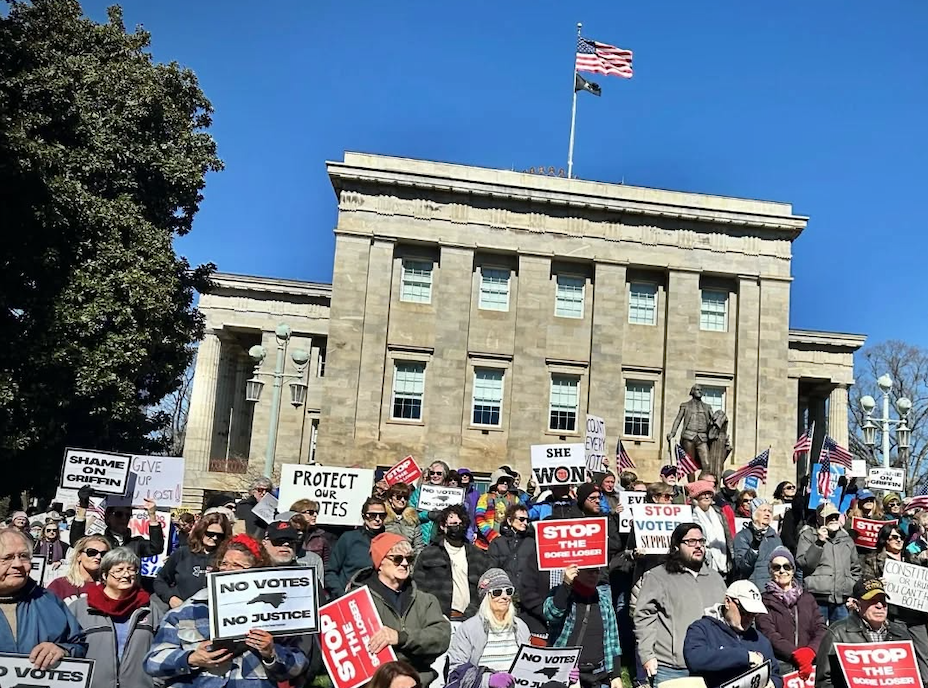North Carolina’s Highest Court Rejects Petition To Bypass Appeals Court in State Supreme Court Challenge

The North Carolina Supreme Court denied the state board of elections’ petition to bypass the appeals court level in an ongoing legal bid by GOP candidate Jefferson Griffin to overturn his 2024 election loss. As a result of the court’s 4-2 order issued today, Griffin’s challenge will proceed in the North Carolina Court of Appeals before ultimately ending up in the state Supreme Court — a move that could potentially benefit his legal efforts to unseat incumbent Democratic Justice Allison Riggs.
By contrast, bypass directly to the North Carolina Supreme Court might have been more favorable to Riggs, as it would have enabled a recent Wake County Superior Court ruling rejecting Griffin’s challenge to remain in place if the justices (with Riggs recused) deadlocked in a 3-3 split.
But with the justices’ rejection of the bypass petition, an evenly divided state Supreme Court decision would allow a ruling from the Republican-dominated state appeals court — composed of judges potentially more open to Griffin’s arguments — to stand. Put differently, Griffin would only need the votes of three state Supreme Court justices — as opposed to four — to succeed before the state’s highest tribunal if the appeals court rules in his favor.
At issue in Griffin’s challenges are the votes of 65,000 North Carolinians whose ballots are being retroactively challenged — a legal maneuver that voting rights advocates view as an attempt at mass disenfranchisement.
Democratic Justice Anita Earls dissented from today’s order, stating that “further delay at this stage continues to erode trust in our elections and calls into question the ability of the legal system to guarantee that fundamental principles of democracy are capable of being recognized and enforced by a fair and impartial judiciary.” Earls was joined in dissent by Republican Justice Richard Dietz.
In early January, the state Supreme Court halted certification of Riggs’ victory over Griffin as litigation plays out. Over 100 days have passed since the November 2024 election and the judicial race at issue is the last uncertified statewide contest in the nation.
After the North Carolina Supreme Court eventually weighs in on Griffin’s case, there is a possibility that a federal court assumes jurisdiction over the matter if outstanding issues remain under the U.S. Constitution and federal law.